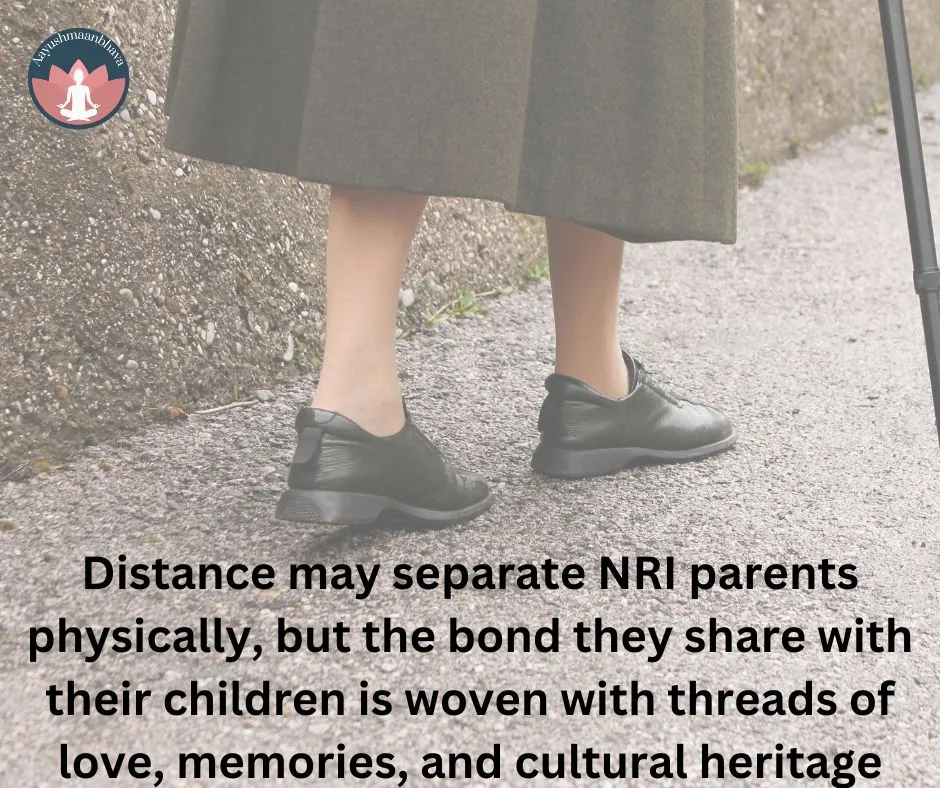As the sun rises over the quaint town of Mysuru, India, Asha’s daily routine begins with lighting a lamp and offering her prayers. Her day proceeds with the usual household chores and preparing meals, but an undercurrent of silence prevails in her home. Over the years, an increasing number of Indian families, like Asha’s, have seen their children leave their homeland to chase dreams and opportunities worldwide, becoming Non-Resident Indians (NRIs). While the tales of these young achievers are widely celebrated, the untold story of the parents left behind remains largely unexplored. This article delves into the emotional journey of these parents, highlighting their resilience and adaptability in the face of adversity.
II. Emotional Challenges Faced by Parents
A. Feelings of loneliness and isolation
When Asha’s son, Ajay, boarded his flight to the United States for his Master’s degree, she never thought the goodbyes would be so hard. As days turned into months and months into years, the silence in her home grew heavier as she grappled with the loneliness and isolation that accompanied his absence.
B. Navigating the generational and cultural gap
As Ajay adapted to life in a new country, Asha noticed subtle changes. Conversations became difficult as they now had fewer common experiences to share. It wasn’t that Ajay didn’t care for his parents, but the generational and cultural gap had widened, making it harder to connect.
C. Coping with major life events and milestones from afar
When Ajay got married, Asha felt an immense sense of joy and pride. However, this milestone also marked the first significant life event she experienced from a distance. Technology allowed her to witness the wedding virtually, but the reality of not being present in person weighed heavily on her heart.
III. Adapting to New Roles and Responsibilities
A. Taking on additional duties in the absence of their children
With Ajay away, Asha found herself taking on new responsibilities. She had to navigate complex bureaucratic systems to manage his property, bank accounts, and taxes. The sense of independence was empowering but also an unexpected challenge.
B. Managing finances and legal matters
Asha’s newfound responsibilities included understanding her son’s financial and legal matters in India and abroad. She consulted professionals and attended workshops to educate herself about the complexities of these issues, ensuring her son’s affairs remained in order.
C. Becoming tech-savvy to maintain communication

Determined to stay connected with Ajay, Asha embraced technology. She adapted quickly to bridge the physical distance from setting up video calls to using instant messaging apps. Her persistence paid off, and the digital world became a means of maintaining their emotional bond.
IV. Preserving Cultural and Family Values
A. Sharing traditions and customs with NRI children
Asha was determined to keep her son connected to their roots. She taught Ajay how to make traditional dishes through video calls and sent him to care packages with festive items during important occasions. It was essential for her that Ajay and his new family continued to appreciate their Indian heritage.
B. Ensuring strong bonds despite the distance
Asha consciously tried to keep the family bond alive, even from thousands of miles away. She sent handwritten letters and photographs to Ajay, ensuring he remained connected with extended family members and the hometown he had left behind.
C. Encouraging visits and reunions
Despite the geographical barriers, Asha and her husband prioritized visiting Ajay and his family in the US. Similarly, they eagerly awaited Ajay’s visits to India, ensuring the physical distance did not weaken their familial bond. These reunions allowed them to create new memories together and strengthen their connection.
V. Finding Support and Community
A. Connecting with other parents of NRIs
Realizing that she was not alone in her struggles, Asha sought solace in connecting with other parents of NRI children. She found comfort in shared experiences and exchanging stories, which helped her navigate through her unique challenges.
B. Engaging in local groups and activities
Asha began participating in local groups and clubs to combat loneliness and stay active. She took up new hobbies like gardening and yoga and even volunteered at the nearby school. These engagements filled her days and provided a sense of purpose and fulfillment.
C. Leveraging technology for communication and connection
Asha’s newfound technological skills also allowed her to forge new friendships and stay in touch with friends who had moved away. Social media platforms and instant messaging apps became a lifeline for her, ensuring she remained connected with her support network.
VI. The Silver Linings
A. Personal growth and newfound independence
Despite her challenges, Asha’s journey as a parent of an NRI child led to personal growth and newfound independence. Taking charge of unfamiliar responsibilities, she became more resilient and self-reliant, embracing change with grace and determination.
B. Opportunities for travel and experiencing new cultures
As Asha visited Ajay in the United States, she was exposed to new cultures and experiences. This broadened her horizons and enriched her perspective on life. She enjoyed discovering new places, trying new cuisines, and learning about different customs and traditions.
C. Pride in their children’s achievements abroad
Though being away from her son was difficult, Asha couldn’t help but feel immense pride in Ajay’s accomplishments. She knew her sacrifices enabled him to pursue his dreams, and witnessing his success made every challenge worth it.
VII. Conclusion
The journey of parents with NRI children like Asha is filled with emotional challenges, adaptation, and personal growth. Acknowledging their unique struggles is essential in fostering a broader dialogue and understanding of their experiences. As we celebrate the success of NRI children, it’s important to recognize the unwavering resilience and adaptability of the parents left behind, who continue to support and nurture their children’s dreams despite the miles between them.

